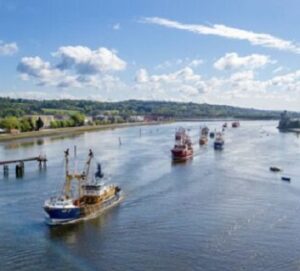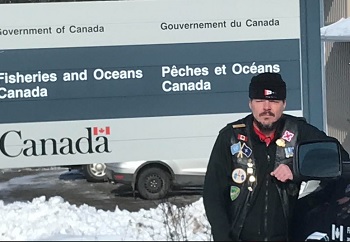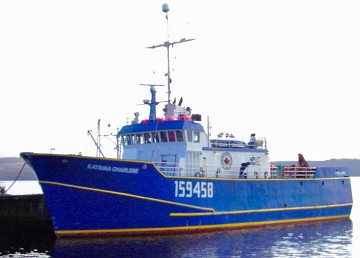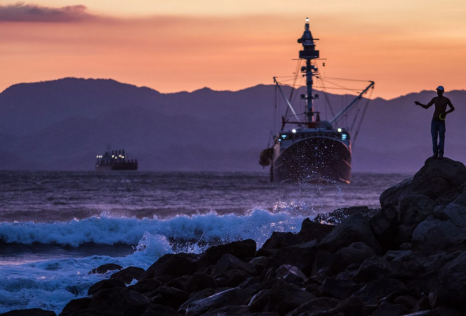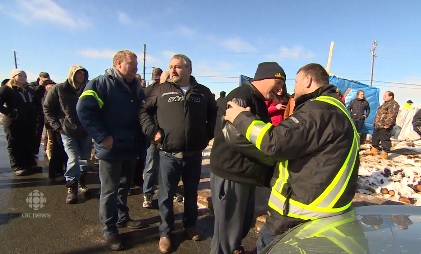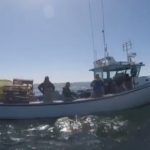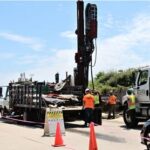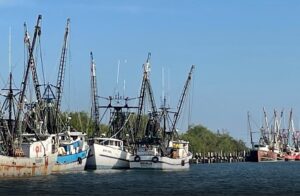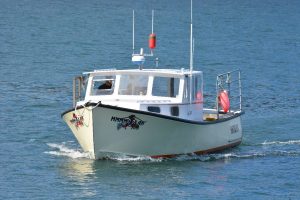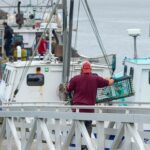Tag Archives: Fish
WHALES DECLARE BOEM IS A TERRORIST ORGANIZATION COMMITTING GENOCIDE By Jim Lovgren
 In a press release issued today by the AAA, an aquatic coalition of many different marine creatures, it was declared that the United States Bureau of Ocean Energy Management was a terrorist organization intent on the extermination of all marine mammals and other sea life. The National Marine Fishery Service was named as a co-conspirator, for standing by and watching, instead of doing their legally required job of protecting endangered species. The AAA, Aquatic Animals Association, is a newly formed coalition of different marine species including Whales, Dolphins, Turtles, fish, clams, and scallops. Despite the vast disparity in their abilities to communicate with each other, they have combined each other’s unique communication forms into one voice in hopes of saving themselves from extinction. From Harvey Haddock, President, Aquatic Animal Association. more, >>CLICK TO READ<< 17:14
In a press release issued today by the AAA, an aquatic coalition of many different marine creatures, it was declared that the United States Bureau of Ocean Energy Management was a terrorist organization intent on the extermination of all marine mammals and other sea life. The National Marine Fishery Service was named as a co-conspirator, for standing by and watching, instead of doing their legally required job of protecting endangered species. The AAA, Aquatic Animals Association, is a newly formed coalition of different marine species including Whales, Dolphins, Turtles, fish, clams, and scallops. Despite the vast disparity in their abilities to communicate with each other, they have combined each other’s unique communication forms into one voice in hopes of saving themselves from extinction. From Harvey Haddock, President, Aquatic Animal Association. more, >>CLICK TO READ<< 17:14
Fishermen Thank Governor Youngkin for Declaring “Commercial Waterman Safety Week” in Response to Growing Threats
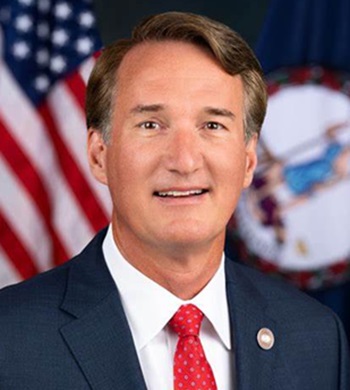 Virginia Governor Glenn Youngkin has declared this week, September 15-21, 2024, ‘Commercial Waterman Safety Week.’ The governor’s proclamation recognizes that Virginia’s more than 1,500 commercial watermen ‘risk their lives sustaining a tradition passed down through generations,’ help generate over $1 billion in economic impact for the Commonwealth, and deserve ‘access to a secure and safe work environment. The Menhaden Fisheries Coalition and the Virginia Waterman’s Association are grateful to Governor Youngkin for recognizing the vital role of Virginia watermen, including menhaden fishermen and watermen harvesting crabs, oysters, clams, fish, and other shellfish. Governor Youngkin has taken important steps to ensure Virginia’s fishermen and watermen have a safe place to work on the water. more, >>CLICK TO READ<< 19:15
Virginia Governor Glenn Youngkin has declared this week, September 15-21, 2024, ‘Commercial Waterman Safety Week.’ The governor’s proclamation recognizes that Virginia’s more than 1,500 commercial watermen ‘risk their lives sustaining a tradition passed down through generations,’ help generate over $1 billion in economic impact for the Commonwealth, and deserve ‘access to a secure and safe work environment. The Menhaden Fisheries Coalition and the Virginia Waterman’s Association are grateful to Governor Youngkin for recognizing the vital role of Virginia watermen, including menhaden fishermen and watermen harvesting crabs, oysters, clams, fish, and other shellfish. Governor Youngkin has taken important steps to ensure Virginia’s fishermen and watermen have a safe place to work on the water. more, >>CLICK TO READ<< 19:15
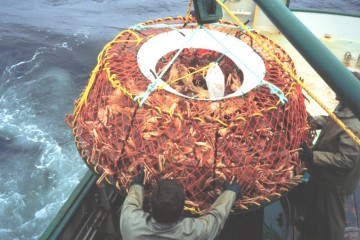
Price setting panel sets snow crab at $2.20 per pound — down over $5 from 2022 season
The Fish, Food and Allied Workers Union, which represents Newfoundland and Labrador’s inshore fishermen, had asked the panel for a price of $3.10, and say fishing at $2.20 per pound is unsustainable. FFAW president Greg Pretty said crab committees throughout the province have decided not to fish at $2.20 per pound, and will review their stance in the coming weeks. “There’s no appetite to go fishing for nothing,” Pretty told CBC Radio Thursday, calling the decision a catastrophe that rivals the cod moratorium of 1992. “You can’t get crew members for that. You can’t even pay crew members on that type of money…. There’s a net economic point where it doesn’t make any sense to fish, and that panel hit right on it. Spot on.”>click to read< 20:02
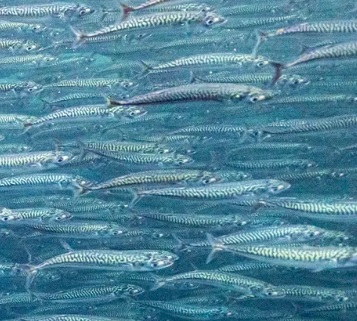
‘The people’s fish’: Atlantic mackerel stocks have collapsed – can a moratorium bring them back?
Canada’s Atlantic mackerel population is a shadow of what it once was, and its decline threatens the well-being of the people who depend on it. Mackerel supports one of Atlantic Canada’s top recreational fisheries, and one of its oldest commercial fisheries. The fish is also used for bait, and it has an important place in Indigenous cultures. The same migratory stock supports recreational and commercial fisheries in the U.S. Last March, the federal Department of Fisheries and Oceans closed Canada’s commercial and bait mackerel fisheries for one year and placed daily personal limits on the recreational fishery, to give the population time to rebound. But the U.S. fishery remains open, albeit with a reduced quota. Next week, federal Fisheries Minister Joyce Murray will decide whether to reopen the Canadian fishery. The DFO’s latest studies have found no sign of recovery in the mackerel stock. Photos, >click to read< 13:09
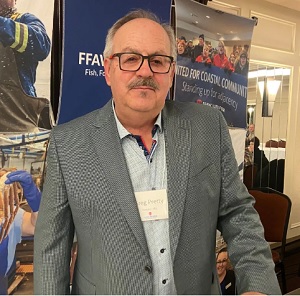
FFAW elects Greg Pretty as new union president
The Fish, Food and Allied Workers Union (FFAW) has a new president. In a secret ballot Thursday at the Comfort Inn in St. John’s, Greg Pretty walked away with the top job. “Thanks to everybody in the room today, particularly those who put their faith in me and chose me to be the leader of this incredibly historic, important union,” Pretty said during his victory speech. “I bring experience and gumption to get things done. But most importantly, I have a robust network of dedicated individuals behind me.” >click to read< 09:26
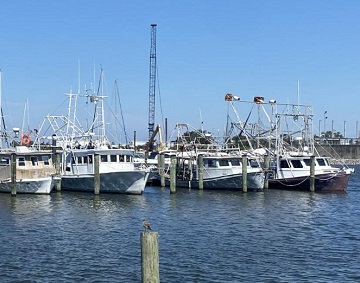
New Orleans fishing industry suffers sourcing issues
Fishing runs through Merlin Schaeffer’s blood. He has been fishing in Louisiana waters for decades, and before him, so were his father and his grandfather. While primarily a fisherman in Lake Pontchartrain, Schaeffer is also the owner of Schaeffer’s Seafood. Located in Bucktown, a small community that thrives on the fishing industry, Schaeffer’s is a shop that sells anything from crabs to shrimp to catfish. Because fishing is a touch-and-go job, fishermen often lack routine and certainty when they head out to work, he said. “You gotta go with the flow, around the weather, the bite, the tide, it goes off a lot, the sails,” Schaeffer said. “Everything varies.” This variance includes prices as well. >click to read< 11:30
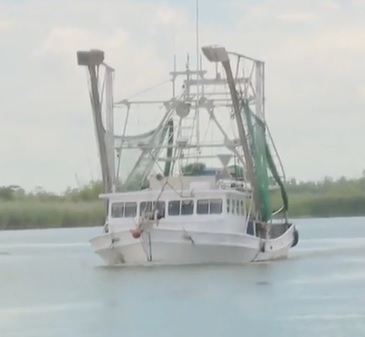
‘I don’t know where the breaking point is at’: A look at the threats the Louisiana seafood industry faces
Whether it’s crawfish, crabs, fish, shrimp or oysters, Louisiana is known for its seafood. The seafood industry is one of Louisiana’s largest employers. But the Louisiana seafood industry is threatened. “We are accountable for one-third of the seafood in this country. That’s something to be proud of,” said Mitch Jurisich, the chairman of the Louisiana Oyster Task Force and a third-generation oyster farmer. “But the industry, it seems like we’ve been under attack for several years now.” Those we talked to in the shrimp and oyster fishing business say there are problems gripping the seafood industry, including price, government projects and natural disasters. Let’s start with the price. Video, >click to read/watch< 21:44
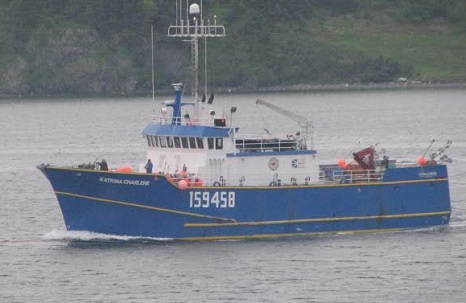
‘You can’t touch the union boat’- Former Fishery Officer alleges DFO kept 2012 Katrina Charlene conviction quiet
The Katrina Charlene and the crab quota it was built to fish have been in the news for almost 20 years for their connection to the FFAW. The story made national news in February when a Fishery Officer alleged DFO kept quiet a conviction against the trawler, so as to not embarrass the union. Today, there’s news the quota sold recently for $1 million, a fraction of its estimated value, to Conne River First Nation. The boat and quota have been sold, but questions remain. What happened to the tens of millions of dollars generated by the crab quota? Fisherman’s Road lays out the story as it’s never been told. First of a three-part series. By Ryan Cleary >click to read< 11:59
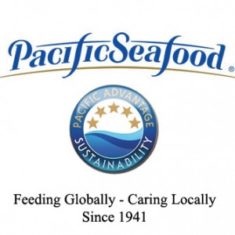
Pacific Seafoods Charleston branch unaffected by coronavirus
While the Newport branch of Pacific Seafood has recorded 124 positive cases of COVID-19, the Charleston branch of the same company has been unaffected. “The cluster of COVID-19 cases in Newport has not impacted our operations or team members in Charleston. No workers from Newport have relocated to Charleston, or to any other facilities,” said Lacy Ogan,,, Pacific Seafood in Charleston has reported that safety precautions are in place. These steps have included increased cleaning protocols, face coverings, daily temperature checks, staggered shifts to allow for less people together and restricted access provided to the facility. >click to read< 16:43
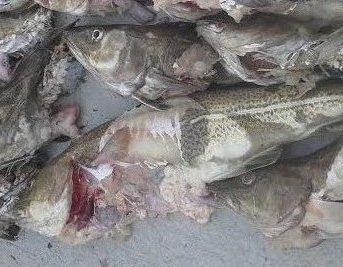
Government of Canada establishes Atlantic Seal Task Team
The sustainable management of Canadian fisheries is important to fish harvesters whose livelihoods are supported by the ocean. The Department of Fisheries and Oceans (DFO) ensures that the best available science is considered when making management decisions for seals. However, DFO has continuously heard concerns by fish harvesters about the relationship between seals and fish populations. Listening to these concerns, DFO is taking action to address a concern that encompasses not only Newfoundland and Labrador, but all Atlantic Canada and Quebec coasts. >click to read<16:18
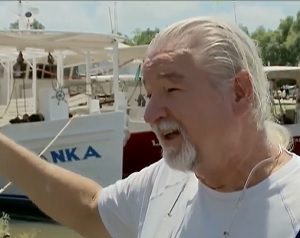
Refusing to Leave! St. Bernard fisherman in Washington, DC to make their case for millions in federal aid
Fishermen and elected leaders from St. Bernard Parish are refusing to leave Washington, DC without $150 million in federal disaster aid, funded through a federal fisheries disaster declaration. They say repeat openings of the Bonnet Carre spillway has flooded the coast with fresh water that seafood cannot tolerate. St. Bernard Parish President Guy McInnis said the openings are destroying the $4 billion regional seafood industry and the money would be used to subsidize fishermen, repair fishing grounds and coastal waters. >click to read< 08:35
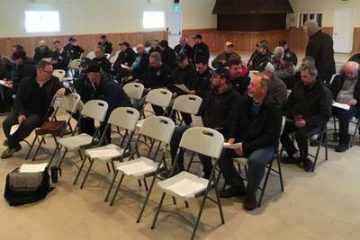
Lots of inshore issues to talk about at DFO meeting in Shearstown
Wednesday’s meeting in Shearstown for inshore harvesters was filled to the brim with conversation, as the Department of Fisheries and Oceans allowed the event to continue well beyond its planned two-hour duration. The discussion covered an array of topics, from the future of bycatch to qualms about size restrictions for vessels and the potential for oil exploration to harm marine life. Chad Payne, a harvester from Old Perlican, brought up the bycatch issue. He said it seemed wasteful for harvesters to get rid of perfectly good fish,,, >click here to read< 20:36
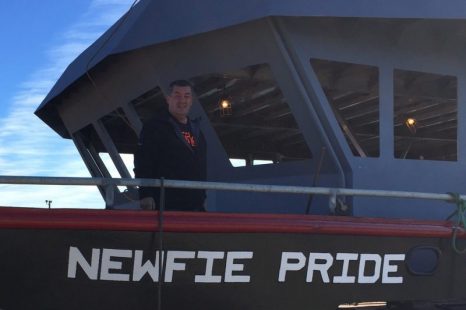
Northern Peninsula shrimp fishers see no reason to fish in 2017
The Fish, Food and Allied Workers (FFAW) union held a meeting for the 4R fleet in Hawke’s Bay on April 24. FFAW 4R chair, Rendell Genge, and the 4R vice chair, Roland Genge, both from Anchor Point, say that if the current outlook persists, in regards to prices and quotas, it’s likely that none of the 4R fleet will participate in the northern shrimp fishery this year. Earlier this year, the Department of Fisheries and Oceans (DFO) announced the northern shrimp quota in shrimp fishing area 6 (SFA 6) would be cut by 63 per cent. Coming on the heels of this was the news that the price for northern shrimp has dropped from $1.40 per pound in 2016 to $0.95 this year. The 4R fishers say they want better prices for shrimp before they can even think about fishing for it. To give a sense of how drastic the reductions in quotas and price would be this year, Roland explained the math. click here to read the story 21:18
Stakeholders hope for more input, more preparedness for potential cod fishery
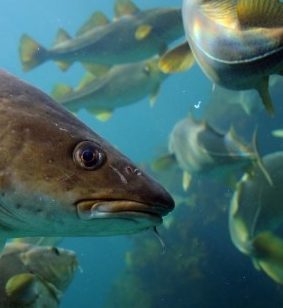 When it comes to a rebuilding plan for the northern cod stocks, the Fish, Food and Allied Workers (FFAW) union wants the government to remember why it’s important to plan for the longevity for the groundfish off the province’s northeast coasts. “That fishery and the way it was, was the lifeblood of many, many communities around rural Newfoundland and Labrador,” FFAW secretary treasurer Dave Decker says. “It’s important that as we are rebuilding that stock … we keep focus on why we’re rebuilding fisheries and it’s to rejuvenate the same communities. Decker took comfort that towns and harvesters affected by a cod moratorium that will celebrate a 25-year anniversary this year weren’t forgotten in a standing committee on fisheries and oceans report tabled in the House of Commons Monday. Ken McDonald, Member of Parliament for Avalon, who initially motioned for the study last February, is hopeful that investments into DFO last year to create 135 new jobs for research scientists following years of cutbacks will help facilitate those assessments. continue reading the article here 22:15
When it comes to a rebuilding plan for the northern cod stocks, the Fish, Food and Allied Workers (FFAW) union wants the government to remember why it’s important to plan for the longevity for the groundfish off the province’s northeast coasts. “That fishery and the way it was, was the lifeblood of many, many communities around rural Newfoundland and Labrador,” FFAW secretary treasurer Dave Decker says. “It’s important that as we are rebuilding that stock … we keep focus on why we’re rebuilding fisheries and it’s to rejuvenate the same communities. Decker took comfort that towns and harvesters affected by a cod moratorium that will celebrate a 25-year anniversary this year weren’t forgotten in a standing committee on fisheries and oceans report tabled in the House of Commons Monday. Ken McDonald, Member of Parliament for Avalon, who initially motioned for the study last February, is hopeful that investments into DFO last year to create 135 new jobs for research scientists following years of cutbacks will help facilitate those assessments. continue reading the article here 22:15
Fish harvesters raise industry concerns at Fish-NL meeting in Marystown
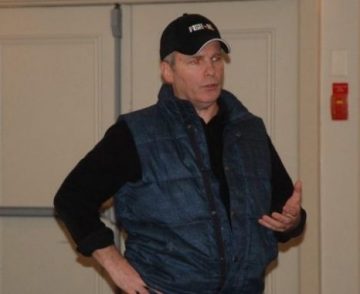 Harvesters from around the Burin Peninsula had an opportunity to raise their concerns about the Fish, Food and Allied Workers (FFAW-Unifor) union during a series of meetings held in the region last week. Additional meetings were held in Bay L’Argent, Fortune, Lawn and Petite Forte. Wayne Meade, who fishes out of Grand Bank, was one of the attendees at last weeks meeting in Marystown. “I fished scallop on St. Pierre bank for a number of years and in 2006 they (FFAW) give away the middle (scallop) bed and the southern bed to the big offshore companies,” he said. “I held a license for that area for the last 25 years and overnight I had it took from (me), so there’s nothing fair about that.” Ryan Cleary, president of FISH-NL said the harvesters at the Marystown meeting are not alone in their feelings. Read the story here 18:24
Harvesters from around the Burin Peninsula had an opportunity to raise their concerns about the Fish, Food and Allied Workers (FFAW-Unifor) union during a series of meetings held in the region last week. Additional meetings were held in Bay L’Argent, Fortune, Lawn and Petite Forte. Wayne Meade, who fishes out of Grand Bank, was one of the attendees at last weeks meeting in Marystown. “I fished scallop on St. Pierre bank for a number of years and in 2006 they (FFAW) give away the middle (scallop) bed and the southern bed to the big offshore companies,” he said. “I held a license for that area for the last 25 years and overnight I had it took from (me), so there’s nothing fair about that.” Ryan Cleary, president of FISH-NL said the harvesters at the Marystown meeting are not alone in their feelings. Read the story here 18:24
Didn’t the train leave the station? FFAW will try to do a better job at communicating with members
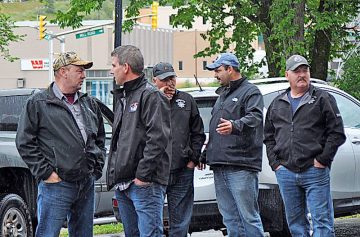 As the FFAW (Fish, Food and Allied Workers) union faces an exodus of members, staff representative Jason Spingle said the union is taking the issue very seriously. FISH-NL, the Federation of Independent Sea Harvesters of Newfoundland and Labrador — an effort of former MP Ryan Cleary and fishermen Jason Sullivan and Richard Gillett — held meetings in Corner Brook and Clarenville this week to gauge and drum up support for the new union. Spingle, who works out of the FFAW’s Corner Brook office representing members from the west coast, Northern Peninsula and Labrador, said he’s seen the coverage of the meetings and recognized a lot of the faces of those who are supporting FISH-NL. With around 2,000 members in the region though, Spingle said there were a lot of people who were not at the meetings. Read the story here 17:22
As the FFAW (Fish, Food and Allied Workers) union faces an exodus of members, staff representative Jason Spingle said the union is taking the issue very seriously. FISH-NL, the Federation of Independent Sea Harvesters of Newfoundland and Labrador — an effort of former MP Ryan Cleary and fishermen Jason Sullivan and Richard Gillett — held meetings in Corner Brook and Clarenville this week to gauge and drum up support for the new union. Spingle, who works out of the FFAW’s Corner Brook office representing members from the west coast, Northern Peninsula and Labrador, said he’s seen the coverage of the meetings and recognized a lot of the faces of those who are supporting FISH-NL. With around 2,000 members in the region though, Spingle said there were a lot of people who were not at the meetings. Read the story here 17:22
Fish Harvesters from around west coast attend meeting in Corner Brook to support FISH-NL
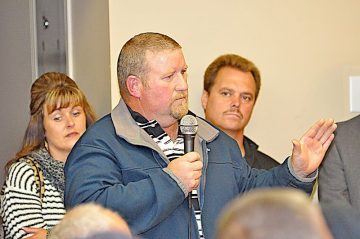 Bruce Short was not one of the ones who needed convincing. The Beaumont, Long Island fisherman drove three hours to the Royal Canadian Legion in Corner Brook on Monday to attend a meeting on the formation of a new union to represent fish harvesters in the province. “This is the most exciting day in my life, to see that the fishermen in this province are starting to get a backbone,” Short said just minutes after addressing the crowd of about 250 men and women with his support of the new FISH-NL, the Federation of Independent Sea Harvesters of Newfoundland and Labrador. He said it was time to get rid of the regime of the Fish, Food and Allied Workers (FFAW) union, a group he called “just a Mafia.” Read the story here 08:01
Bruce Short was not one of the ones who needed convincing. The Beaumont, Long Island fisherman drove three hours to the Royal Canadian Legion in Corner Brook on Monday to attend a meeting on the formation of a new union to represent fish harvesters in the province. “This is the most exciting day in my life, to see that the fishermen in this province are starting to get a backbone,” Short said just minutes after addressing the crowd of about 250 men and women with his support of the new FISH-NL, the Federation of Independent Sea Harvesters of Newfoundland and Labrador. He said it was time to get rid of the regime of the Fish, Food and Allied Workers (FFAW) union, a group he called “just a Mafia.” Read the story here 08:01

Upstart FISH-NL Turns Up the Heat on Fish, Food and Allied Workers Union!
Things got a little heated outside the Fish, Food and Allied Workers office in Corner Brook when some 250 harvesters from around the west coast marched there to show the union they are fed up with the representation they’ve been getting. The group had been attending a meeting on the formation of a new union at the Legion when Conway Caines of Cow Head, a regular on the Discovery Channel’s “Cold Water Cowboys,” suggested they hold a peaceful walk to the union’s office. Ryan Cleary, former MP and one of the men behind the formation of FISH-NL (the Federation of Independent Sea Harvesters of Newfoundland and Labrador), went with them. Cleary said FFAW president Keith Sullivan made a remark to the CBC that the group interested in forming the new union was a vocal minority. Read the story here 17:37
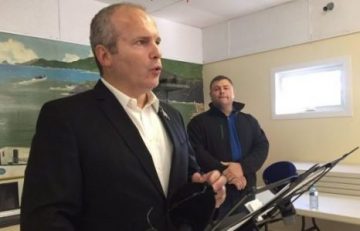
Fish harvesters are “ready to revolt.” Ryan Cleary to help form breakaway fish union
A former NDP MP says forming a new union for fishermen will be a big challenge, but Ryan Cleary told reporters on Monday that he thinks it is possible. Cleary held a news conference in Petty Harbour to talk about what he called a “David versus Goliath challenge.” Harvesters have been pleading with him to start a union that represents fishermen only, Cleary said. They are currently part of the Fish, Food and Allied Workers Union (FFAW), which also represents plant workers. Cleary called that a “conflict of interest,” and said it’s hard for the union to be critical of government policies when it received “untold millions” from the federal government. He said harvesters are “ready to revolt.” Read the story here ‘Fish harvesters have lost confidence in the FFAW’ – Read this article here ‘The FFAW is a conflict of interest wrapped in a mystery inside a huge puzzle with pieces missing, the missing pieces being fish’ Read this article here 07:50
Fish, Food and Allied Workers Union News Release: Improvements to Northern Cod Fishery are a Step in the Right Direction
 St. Johns – The one-year management approach for the 2016 2J3KL Stewardship Cod fishery signals a new chapter in rebuilding the cod fishery in Newfoundland and Labrador. The improvements in the approach for the 2016 fishery, announced by the Department of Fisheries and Oceans (DFO) last week, includes a lengthened season with opportunities to harvest more cod. According to data from DFO, the Northern cod spawning stock biomass has increased from 20,000 tonnes in 1997 to 300,000 tonnes today. “Rebuilding the cod fishery will bring with it many challenges and opportunities,” said Keith Sullivan, President of the Fish, Food and Allied Workers Union. “This new approach will provide harvesters with an increased opportunity to harvest and will give the processing sector opportunities to market more sustainable, high quality cod.” Read the press release here 11:34
St. Johns – The one-year management approach for the 2016 2J3KL Stewardship Cod fishery signals a new chapter in rebuilding the cod fishery in Newfoundland and Labrador. The improvements in the approach for the 2016 fishery, announced by the Department of Fisheries and Oceans (DFO) last week, includes a lengthened season with opportunities to harvest more cod. According to data from DFO, the Northern cod spawning stock biomass has increased from 20,000 tonnes in 1997 to 300,000 tonnes today. “Rebuilding the cod fishery will bring with it many challenges and opportunities,” said Keith Sullivan, President of the Fish, Food and Allied Workers Union. “This new approach will provide harvesters with an increased opportunity to harvest and will give the processing sector opportunities to market more sustainable, high quality cod.” Read the press release here 11:34
Grand Bank scallop fishermen once again block access to Clearwater Seafoods plant
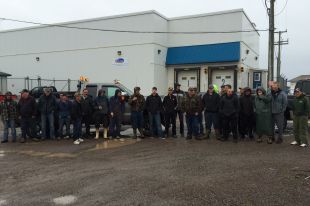 The harvesters want answers from the Fish, Food and Allied Workers (FFAW-Unifor) union and the Department of Fisheries and Oceans (DFO) about access to scallop beds on St. Pierre Bank. The fishermen initially blocked the plant on Monday and thought they might be making some headway when they were invited to take part in a conference call with Bonavista-Burin-Trinity MP Judy Foote, DFO officials and the union on Thursday. Things didn’t pan out as the harvesters had hoped, however, Wayne Meade said. FFAW-Unifor representatives spoke with government first. The union then held a second conference call with the fishermen without anyone from government on the line, Meade said. Which pissed them off! Read the rest here 18:41
The harvesters want answers from the Fish, Food and Allied Workers (FFAW-Unifor) union and the Department of Fisheries and Oceans (DFO) about access to scallop beds on St. Pierre Bank. The fishermen initially blocked the plant on Monday and thought they might be making some headway when they were invited to take part in a conference call with Bonavista-Burin-Trinity MP Judy Foote, DFO officials and the union on Thursday. Things didn’t pan out as the harvesters had hoped, however, Wayne Meade said. FFAW-Unifor representatives spoke with government first. The union then held a second conference call with the fishermen without anyone from government on the line, Meade said. Which pissed them off! Read the rest here 18:41
FFAW, offshore shrimp fleet at odds, as LIFO raises its ugly head
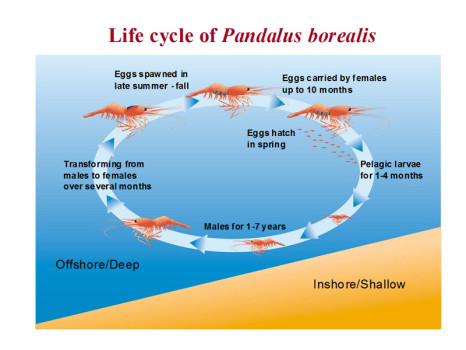 With word of a severe drop in shrimp stock in the prime fishing grounds off southern Labrador, the Fish, Food and Allied Workers union (FFAW-Unifor) is asking for an immediate halt on shrimping in the area. But the FFAW represents inshore fleet and island processors, rather than the factory-freezer operations of the offshore fleet. And the Canadian Association of Prawn Producers, speaking for the larger-vessel operations, said Thursday the FFAW’s cries are an inappropriate reaction, while their reasoning is misleading. Read the rest here 08:40
With word of a severe drop in shrimp stock in the prime fishing grounds off southern Labrador, the Fish, Food and Allied Workers union (FFAW-Unifor) is asking for an immediate halt on shrimping in the area. But the FFAW represents inshore fleet and island processors, rather than the factory-freezer operations of the offshore fleet. And the Canadian Association of Prawn Producers, speaking for the larger-vessel operations, said Thursday the FFAW’s cries are an inappropriate reaction, while their reasoning is misleading. Read the rest here 08:40
Fish found in Washington’s Puget Sound are tripping on cocaine, Prozac, Advil, Benadryl, and Lipitor.
 Unfortunately, there is no aquatic drug dealer responsible for it. Instead, the intoxication is the result of tainted discharge water. Pharmaceutical pollution could be to blame for the many drugs showing up in the tissues of juvenile Chinook salmon. Estuary waters near the sewage treatment plants were found to contain a cocktail of up to 81 different drugs, according to a new study out of the National Oceanie and Atmospheric Administration (NOAA). There are several plausible theories about the Puget Sound’s high concentration of . Jim Meador, an environmental toxicologist at the NOAA’s Northwest Fisheries Science Center in Seattle, published a study that offered two options. Read the rest here 14:03
Unfortunately, there is no aquatic drug dealer responsible for it. Instead, the intoxication is the result of tainted discharge water. Pharmaceutical pollution could be to blame for the many drugs showing up in the tissues of juvenile Chinook salmon. Estuary waters near the sewage treatment plants were found to contain a cocktail of up to 81 different drugs, according to a new study out of the National Oceanie and Atmospheric Administration (NOAA). There are several plausible theories about the Puget Sound’s high concentration of . Jim Meador, an environmental toxicologist at the NOAA’s Northwest Fisheries Science Center in Seattle, published a study that offered two options. Read the rest here 14:03Fisherman blames factory freezer trawlers for shrimp decline
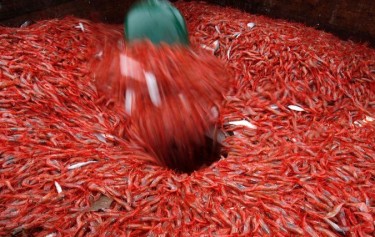 Roland Genge, a fishing boat captain and the deputy mayor of the town of Anchor Point on the Northern Peninsula, has been predicting a change for years, and believes someone should have known there would be damaging effects of trawlers on the inshore fishery. “I’ve been writing (about this) since 2008,” the 38-year veteran shrimp fisherman explained. “I told (the government) where it was going to be to today. “It’s devastating to our area. You’re going to kill all the communities with this.” Predictions of the state of the shrimp fishery were made public earlier this week when the Fish, Food and Allied Workers (FFAW) in a press release (here) The union has been told the shrimp biomass is down about 40 per cent. Read the rest here 08:52
Roland Genge, a fishing boat captain and the deputy mayor of the town of Anchor Point on the Northern Peninsula, has been predicting a change for years, and believes someone should have known there would be damaging effects of trawlers on the inshore fishery. “I’ve been writing (about this) since 2008,” the 38-year veteran shrimp fisherman explained. “I told (the government) where it was going to be to today. “It’s devastating to our area. You’re going to kill all the communities with this.” Predictions of the state of the shrimp fishery were made public earlier this week when the Fish, Food and Allied Workers (FFAW) in a press release (here) The union has been told the shrimp biomass is down about 40 per cent. Read the rest here 08:52
‘Shafted’ by FFAW, Flowers Cove fisherman tells court
 A fish harvester from Flowers Cove says he feels “shafted” by his union because of the terms of a compensation fund negotiated with Nalcor, to offset the loss of scallop grounds in the Strait of Belle Isle. Edmund Moores is one of 71 people who are suing the union, in a trial that continued Wednesday in the . The Fish, Food and Allied Workers argues that the $2,590,875 should be paid out in annual installments over 30 years. The court has been told they believed the money would be paid out in a lump sum. Read the article here 08:27
A fish harvester from Flowers Cove says he feels “shafted” by his union because of the terms of a compensation fund negotiated with Nalcor, to offset the loss of scallop grounds in the Strait of Belle Isle. Edmund Moores is one of 71 people who are suing the union, in a trial that continued Wednesday in the . The Fish, Food and Allied Workers argues that the $2,590,875 should be paid out in annual installments over 30 years. The court has been told they believed the money would be paid out in a lump sum. Read the article here 08:27






